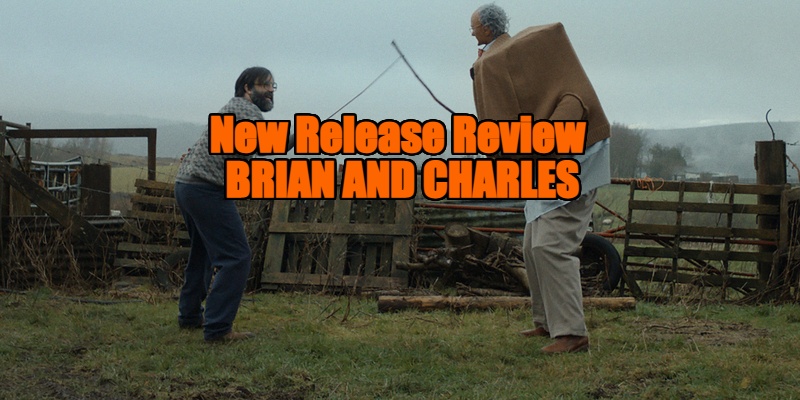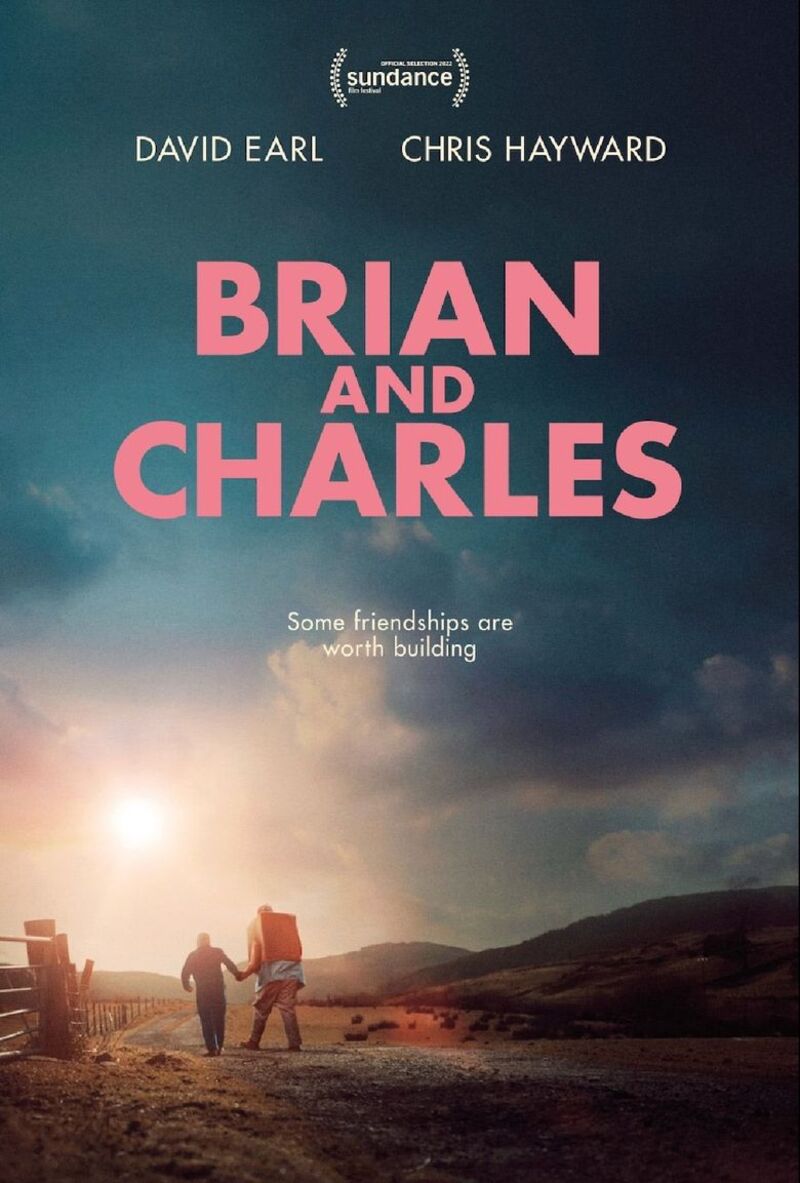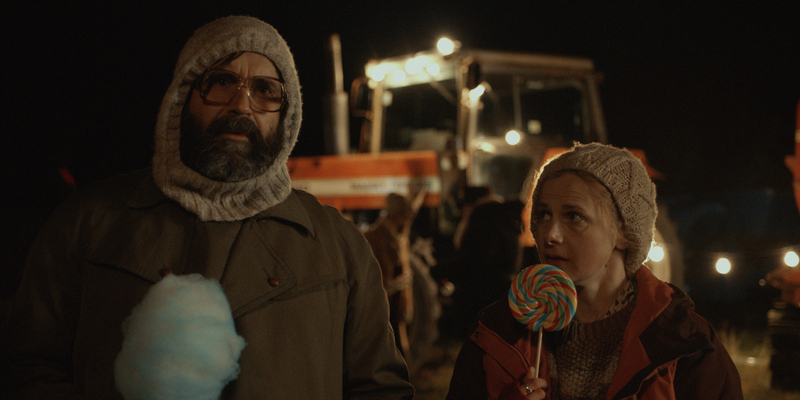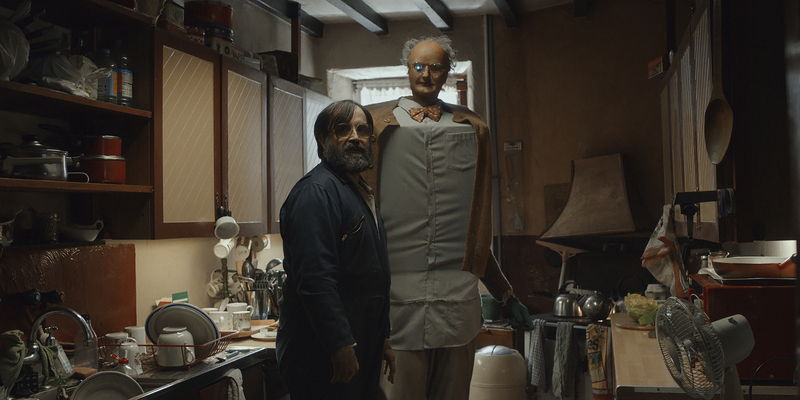
Review by
Eric Hillis
Directed by: Jim Archer
Starring: David Earl, Chris Hayward, Louise
Brealey, James Michie, Nina Sosanya

British comedian David Earl is best known for his appearances in
various Ricky Gervais projects, most recently the Netflix series
After Life. The influence of Gervais can be found in Brian and Charles, Earl's first foray into the world of feature filmmaking, co-written
with fellow comic Chris Hayward and directed by
Jim Archer. Like The Office, it adopts a Spinal Tap-esque mockumentary approach, its protagonist seemingly followed
everywhere by an unseen camera crew.

The technique is employed here in a manner that doesn't seem to have
been very well thought out. If you've ever watched a found footage
horror movie and found yourself asking why anyone would still be filming
under such circumstances, you'll likely ask similar questions at various
points in Brian and Charles. When we meet Brian (Earl), a lonely, socially awkward eccentric
inventor who lives in rural Wales, we wonder if there really is a camera
crew or if he's simply speaking to himself. But early on an unseen
director has a verbal interaction with Brian, which cements the film's
mockumentary approach. It's largely forgotten about from that point,
with sequences that feature so many camera angles the documentary crew
would need to be larger than that of a Michael Bay movie to capture the
footage. Also, nobody but Brian ever acknowledges the presence of the
cameras. The approach comes off as little more than a crude way to
establish the character of Brian by having him give us a guided tour of
his lonely world in the film's opening scenes. From then it becomes
something of an inconvenience that the movie hopes we forget
about.
If you can forget about it, Brian and Charles is a minor
delight. Earl and Hayward have crafted a Frankenstein tale by way of
'80s movies like Short Circuit, one with bags of charm. Stumbling across a mannequin head while
combing a trash heap for inspiration, Brian decides he's going to build
himself a robot. The result is Charles, a hulking android with a washing
machine for a chest and a glowing blue eye. If you grew up watching
British kids' TV in the '80s, you'll note the resemblance to the popular
ventriloquist's dummy Lord Charles, no doubt an inspiration for Earl and
Hayward (the latter performs inside the bulky robot suit).

Despite spending "72 hours" working on his creation, Charles refuses to
come to life for Brian. That is until there's a lightning storm, and
Brian finds himself suddenly sharing his home with a seven foot tall
companion. Much of the comedy comes from the developing relationship
between the titular duo. It all starts off well with the two becoming
fast friends, but Charles' mental evolution means he reaches the android
equivalent of his teen years after a few days. This of course means he
starts to rebel against his creator, spending time in his room blasting
music in a huff over Brian's refusal to allow him to travel to Honolulu,
a destination he becomes obsessed with after watching a TV travel
show.
A subplot about a family of local wrong 'uns getting their hands on
Charles is brought to the forefront for some final act drama, as is a
narrative concerning Brian's relationship with an equally shy woman (Louise Brealey). But the movie is most successful in its middle section when we just
get to hang out with Brian and Charles as human and robot develop a
bond. Despite being confined to a suit that doesn't allow for much
expression, Hayward displays an understanding of how to mine laughs from
a character that can't emote. The way he moves his head and leans in
awkwardly during conversations provokes laughs for a reason I can't
quite get to the heart of – some things are just funny.

Brian describes his creation as ending up with a blancmange when he was
aiming for a sponge cake, but he claims to also enjoy blancmange. That's
a fitting allegory for Brian and Charles. With a bit more polish it may have been a more satisfying sponge
cake, but blancmange is good enough in this case.


